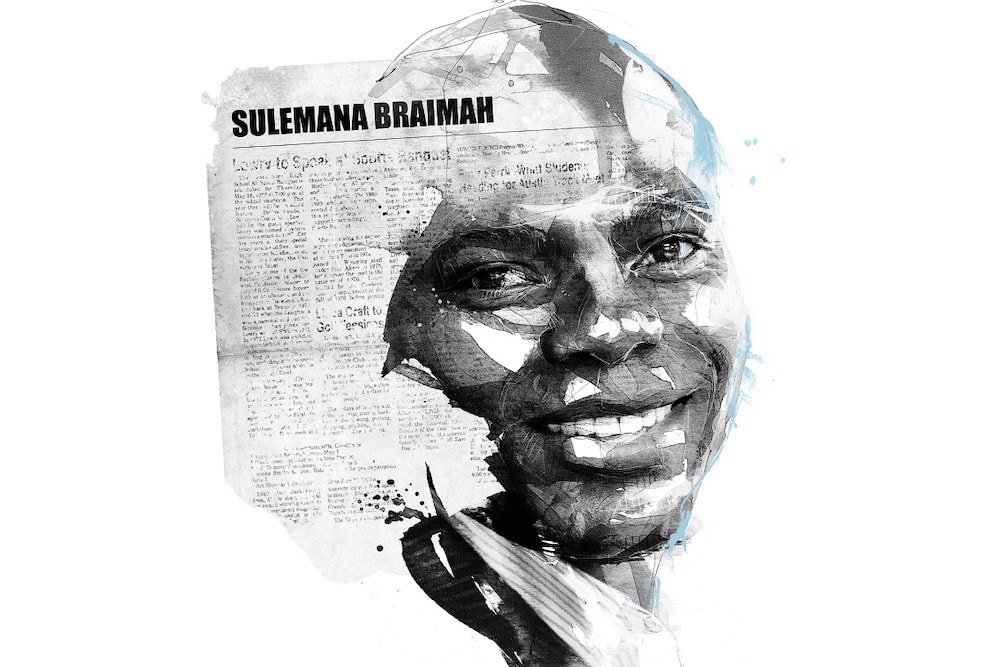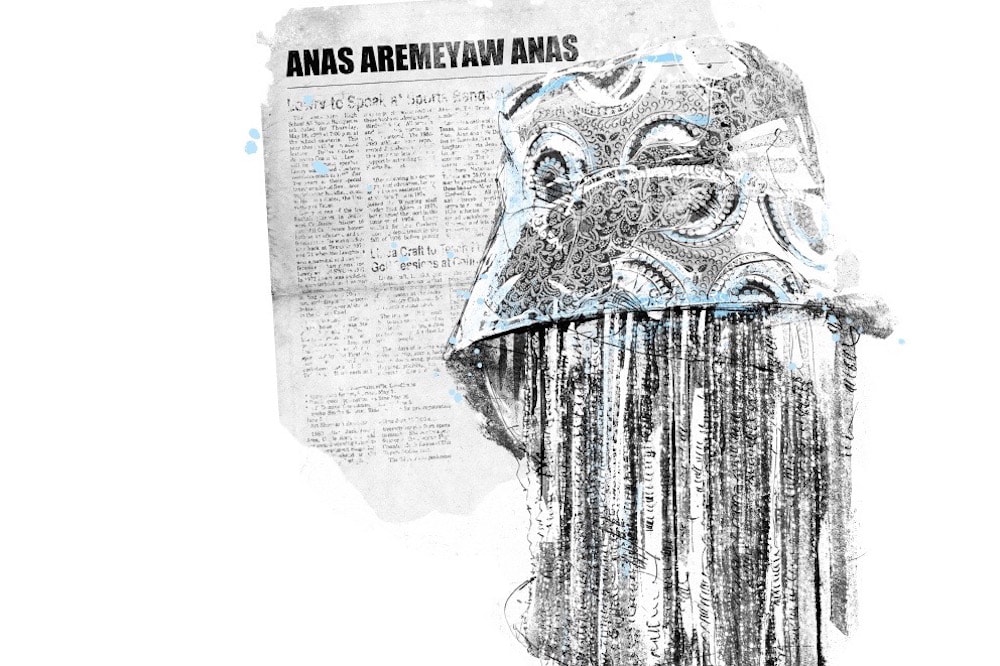Former journalist and longstanding Ghanaian advocate Sulemana Braimah has instituted creative pathways across the West African region that support mechanisms protecting the right to freedom of expression, drive accountability, and reinforce the public's right to access information.
"The type of journalism that keeps democracies alive is one that serves the interest of the powerless by holding the powerful accountable; the type that exposes wrongdoing and gives a voice to those whose voices cannot be heard. Under the current context, it is becoming quite challenging to do the type of journalism that holds power to account."
Sulemana Braimah is making a powerful impression on the freedom of expression landscape – not only in West Africa, but in the global arena.
But back in 2014 when he took on the role of executive director of the Media Foundation for West Africa (MFWA), Braimah initially had doubts. “I was taking over from a colossus like Professor Kwame Karikari, as a young, far less experienced leader of an organisation that was not just focused on Ghana but across the 16 countries of West Africa,” said Braimah. “How was I going to fit into the big shoes of Prof Kwame Karikari?”
In less than a decade, Braimah has proven his competence as the head of the organisation, and his resilience and visionary leadership have helped transform the MFWA into a formidable influencer in the West African region.
This is no mean feat, in particular given the escalating nature and frequency of media freedom violations across the West African region. In the face of threats and attacks from both state and non-state actors, coupled with arbitrary legal convictions, media are operating in countries that are experiencing an upsurge in insurgencies led by armed militants. Additionally, numerous coup d’états have occurred, leading to suspensions and expulsions as military juntas clamp down.
Braimah’s passion to protect rights was reinforced early on, by the social work he undertook during a portion of his Masters programme, when he travelled to Canada on a scholarship. Since the University of Manitoba did not have a journalism or media programme, Braimah and a fellow colleague from the communications department at the University of Ghana were integrated into the social work department.
This work on the rights of minorities helped steer the direction of Braimah’s career when he returned home to Ghana. As he contemplated how to merge his journalism work with his recent experience advocating for the care of vulnerable communities, his professor informed him of a vacancy at the MFWA. Braimah saw it as a great opportunity to provide support to journalists.
That advocacy role was amplified during the early years of his leadership at the MFWA. Braimah’s interaction with the families of persecuted journalists was pivotal in moulding the work of the MFWA and the Gambia Press Union (GPU) in The Gambia around safety and justice.
To counter the culture of impunity that gave rise to President Yahya Jammeh’s brutal repression, the MFWA and GPU filed a petition with the Community Court of Justice (CCJ) of the Economic Community of West African States (ECOWAS). The two organisations were seeking redress for the forced disappearance of journalist Chief Ebrima Manneh. It was a multifaceted approach adopted to contest Jammeh’s tyrannical behaviour, hold the government accountable for its actions, and give the family some kind of comfort.
“I remember one meeting when Manneh’s 96-year-old father told us how he would go to the Ministry of Information and ask: ‘just tell me where my son is? If he’s dead, just tell me where his body is?’ This brought me to tears.”
Braimah’s innovative vision also contributes powerfully to promoting access to information. He helped create “The Fourth Estate,” Ghana’s pioneering independent, non-profit, public-interest accountability journalism project. The establishment of this investigative journalism unit earned Braimah the prestigious 2023 James and Carol Hovey Eisenhower Fellowships Impact Award.
The signing of the Memorandum of Understanding between the MFWA and the Economic Community of West African States (ECOWAS) is just the latest example of his approach to impactful coalition building. The partnership with an inter-governmental institution to advance the cause of progressive media reform is strategic, innovative and ground-breaking.
In short, what drives Braimah is his concern for the rights of the vulnerable and his tenacity and courage in calling for accountability – whether it is from the media, citizens or those in power. As he said at an event on the theme: “Power, Corruption and Cognitive Capture; The Tragedy of a Rich but Poor Nation,” on African Union Day:
“To bring about a positive, enduring change to the status quo will require that we all become bold to speak truth to power and recognise that our worth will not only be defined by our wealth but also by the power of our voices and values.”
Illustration by Florian Nicolle

